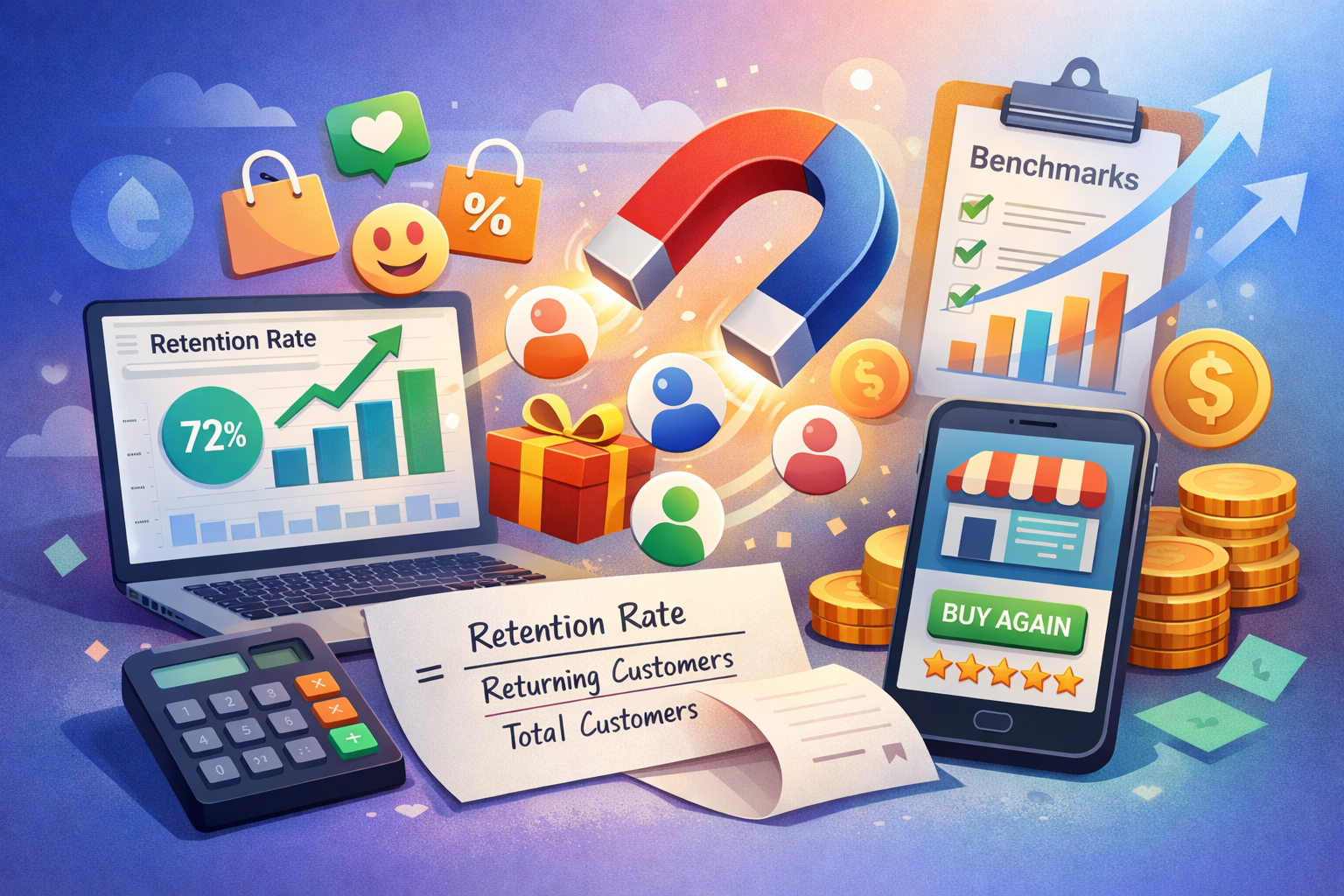Try Zipchat in Action!
Enter your store URL to see how Zipchat would behave.

Email marketing is a powerful tool that can significantly contribute to the growth of sales on Commerce Cloud. By effectively implementing an email marketing strategy, businesses can reach their target audience, drive engagement, and ultimately increase conversions. In this article, we will explore the importance of email marketing in e-commerce and provide a step-by-step guide on how to set up and optimize your email marketing campaigns.
Understanding the Importance of Email Marketing in E-commerce
In the world of e-commerce, email marketing plays a crucial role in driving sales growth. It serves as a direct line of communication between businesses and their customers, allowing them to nurture relationships, build brand loyalty, and promote products or services. According to a study conducted by the Direct Marketing Association, email marketing generates an average return on investment (ROI) of $42 for every dollar spent. This statistic alone highlights the tremendous potential of email marketing in boosting sales on Commerce Cloud.
The Role of Email Marketing in Sales Growth
Email marketing is highly effective in driving sales growth for several reasons. Firstly, it allows businesses to target their messaging to specific customer segments based on their preferences, purchase history, and behavior. This level of personalization enhances the relevance of the content delivered to the recipient, increasing the chances of conversion. For example, a clothing retailer can send personalized emails to customers who have previously purchased winter coats, showcasing new arrivals in their winter collection. This targeted approach ensures that customers receive tailored recommendations that align with their interests and needs.
Secondly, email marketing provides businesses with the opportunity to stay top-of-mind with their customers. By consistently delivering valuable content and promotions, businesses can build trust and credibility, leading to repeat purchases and customer loyalty. For instance, a beauty brand can send regular newsletters featuring skincare tips, product recommendations, and exclusive discounts. By providing valuable information and incentives, the brand establishes itself as a trusted authority in the industry, encouraging customers to make repeat purchases and refer their friends.
Finally, email marketing enables businesses to track and analyze the performance of their campaigns, providing insights on what works and what doesn't, facilitating continuous improvement. By leveraging analytics tools, businesses can measure open rates, click-through rates, and conversion rates, allowing them to optimize their email marketing strategies. For example, an online bookstore can track which book recommendations receive the highest click-through rates and adjust their future campaigns accordingly. This data-driven approach ensures that businesses can make informed decisions and refine their email marketing efforts for maximum impact.
Key Benefits of Email Marketing for E-commerce
When it comes to e-commerce, email marketing offers several key benefits that directly impact sales growth. Firstly, it has a wide reach, with a study by Statista reporting that there were 4 billion email users worldwide in 2022. This vast audience provides businesses with the opportunity to connect with a large pool of potential customers. With the right email marketing strategy, businesses can tap into this extensive network and expand their customer base.
Secondly, email marketing allows businesses to target their messaging with precision. By segmenting their email list based on demographics, purchase behavior, or engagement level, businesses can tailor their content to specific customer needs, increasing the likelihood of conversion. For example, an online fitness retailer can send personalized emails to customers who have shown interest in workout equipment, offering them exclusive discounts or highlighting new arrivals in that category. This targeted approach ensures that customers receive relevant and enticing offers, increasing the chances of making a purchase.
Lastly, email marketing is a cost-effective marketing channel. Compared to traditional methods such as print advertising or direct mail, email marketing campaigns have significantly lower costs, making it an attractive option for businesses of all sizes. With email marketing, businesses can reach a large audience at a fraction of the cost, allowing them to allocate their marketing budget more efficiently. This cost-effectiveness enables businesses to invest in other areas of their e-commerce operations, such as product development or customer service, further enhancing the overall customer experience.
Setting Up Your Email Marketing Strategy
Before diving into the technical aspects of setting up email marketing campaigns on Commerce Cloud, it is essential to define your goals and identify your target audience. These initial steps will lay a solid foundation for a successful email marketing strategy that resonates with your customers and drives results.

When crafting your email marketing strategy, consider not only your short-term objectives but also your long-term vision for engaging with your audience. By aligning your email campaigns with your overall marketing goals, you can create a cohesive brand experience that fosters loyalty and trust among your customers.
Defining Your Email Marketing Goals
When setting up an email marketing strategy, it is crucial to have clear, measurable goals. These goals will serve as guiding principles for your campaigns and provide a benchmark for evaluating their effectiveness. Whether your aim is to increase sales, enhance customer engagement, introduce new products, or drive traffic to your Commerce Cloud website, establishing specific goals will help you tailor your email content and strategies accordingly.
Furthermore, consider segmenting your goals based on different customer segments or stages of the buyer's journey. By personalizing your email campaigns to address the unique needs and preferences of specific audience segments, you can deliver more relevant and compelling content that drives conversions and nurtures customer relationships.
Identifying Your Target Audience
Understanding your target audience is fundamental to the success of your email marketing efforts. By delving deep into the demographics, behaviors, and preferences of your ideal customers, you can create tailored messages that resonate with their interests and motivations. Utilize data insights from your Commerce Cloud platform, conduct surveys, and analyze customer interactions to refine your understanding of your target audience.
Moreover, consider implementing dynamic content and personalized recommendations in your email campaigns to enhance relevance and engagement. By leveraging customer data to deliver customized experiences, you can build stronger connections with your audience and drive higher conversion rates. Remember, a well-defined target audience forms the cornerstone of an effective email marketing strategy that drives business growth and fosters customer loyalty.
Choosing the Right Email Marketing Tools
Once you have established your goals and identified your target audience, it is time to choose the right email marketing tools to execute your strategy effectively. When selecting an email marketing tool for your Commerce Cloud business, consider the following factors:
Features to Look for in an Email Marketing Tool
When evaluating email marketing tools, look for features that align with your goals and requirements. Some essential features to consider include:
- Segmentation capabilities: The ability to segment your email list based on various criteria allows for targeted campaigns.
- Email templates and customization options: The tool should provide a wide range of templates and customization options to create professional and visually appealing emails.
- Automation and workflow capabilities: Automation features such as drip campaigns or triggered emails can save time and ensure timely follow-up with customers.
- Analytics and reporting: The tool should provide robust analytics and reporting functionalities, allowing you to track the performance of your campaigns and make data-driven decisions.
Segmentation capabilities are crucial for effective email marketing. By dividing your email list into different segments based on demographics, purchase history, or engagement level, you can tailor your messages to specific groups of customers. This targeted approach increases the chances of engagement and conversion, as you are delivering content that is relevant and personalized to each segment.
Furthermore, having a wide range of email templates and customization options is essential for creating visually appealing emails that reflect your brand identity. With the right tools, you can easily customize the layout, colors, and fonts to match your brand's aesthetic. This consistency across your email marketing campaigns helps to build brand recognition and trust among your subscribers.
Automation and workflow capabilities are another key aspect to consider. Drip campaigns, for example, allow you to send a series of pre-scheduled emails to subscribers at specific intervals. This automated approach ensures that your customers receive a consistent flow of relevant content, nurturing them through the buyer's journey. Triggered emails, on the other hand, are sent in response to specific actions taken by the customer, such as abandoned cart reminders or post-purchase follow-ups. These automated workflows save time and effort while keeping your customers engaged.
Lastly, analytics and reporting functionalities are vital for measuring the success of your email marketing campaigns. By tracking metrics such as open rates, click-through rates, and conversion rates, you can gain valuable insights into the effectiveness of your strategies. This data-driven approach allows you to identify areas for improvement and make informed decisions to optimize your future campaigns.
Integrating Email Marketing Tools with Commerce Cloud
To maximize the effectiveness of your email marketing campaigns, it is crucial to integrate your chosen email marketing tool with your Commerce Cloud platform. Integration enables seamless data flow between the two systems, allowing you to leverage valuable customer data stored in Commerce Cloud for your email marketing efforts. Work with your email marketing tool provider and Commerce Cloud administrator to set up the necessary integrations and ensure a smooth workflow.
By integrating your email marketing tool with Commerce Cloud, you can access a wealth of customer data that can enhance your email campaigns. This data includes purchase history, browsing behavior, and customer preferences. With this information at your fingertips, you can create highly personalized and targeted emails that resonate with your customers. For example, you can send tailored product recommendations based on previous purchases or offer exclusive discounts to customers who have shown interest in specific product categories. The possibilities are endless when you combine the power of Commerce Cloud's customer data with the capabilities of your email marketing tool.
Furthermore, integration allows for seamless synchronization of subscriber data between Commerce Cloud and your email marketing tool. This means that when a customer updates their information or unsubscribes from your emails in Commerce Cloud, the changes are automatically reflected in your email marketing tool. This ensures that your email list remains up-to-date and compliant with data privacy regulations.
In conclusion, choosing the right email marketing tools is essential for executing successful campaigns. Look for features that align with your goals, such as segmentation capabilities, email templates, automation, and robust analytics. Additionally, integrating your chosen email marketing tool with Commerce Cloud can unlock the full potential of your email marketing efforts by leveraging valuable customer data. By considering these factors and working towards seamless integration, you can take your email marketing to new heights and drive meaningful results for your Commerce Cloud business.
Creating Effective Email Marketing Campaigns
Now that you have laid the groundwork, it's time to create engaging and personalized email marketing campaigns that drive sales on Commerce Cloud.

Designing Engaging Email Content
The design of your emails plays a crucial role in capturing your subscribers' attention and driving engagement. When designing your email content, consider the following best practices:
- Use a clean and visually appealing layout: Keep your design simple and uncluttered, ensuring that your messages are easy to read and understand.
- Incorporate compelling visuals: Use high-quality images and videos that are relevant to your message to captivate your subscribers' interest.
- Utilize persuasive copywriting: Craft compelling subject lines and persuasive copy that entices your subscribers to open and engage with your emails.
Personalizing Emails for Better Engagement
Personalization is a powerful strategy for increasing engagement and conversion rates in email marketing. When personalizing your emails, consider the following techniques:
- Address subscribers by their names: Use personalization tags to insert subscribers' names in the email's salutation for a more personalized touch.
- Segment your email list: Leverage the segmentation capabilities of your email marketing tool to send targeted content to specific customer segments based on their preferences, purchase history, or engagement level.
- Include dynamic content: Dynamic content allows you to display personalized product recommendations, offers, or messages based on individual customer data.
Measuring the Success of Your Email Marketing
No email marketing strategy is complete without proper measurement and analysis. By tracking key email marketing metrics and analyzing the results, you can optimize your campaigns for better performance and increased sales on Commerce Cloud.
Key Email Marketing Metrics to Track
When measuring the success of your email marketing campaigns, focus on the following key metrics:
- Open Rate: The percentage of recipients who opened your email. A higher open rate indicates that your subject lines and sender name are compelling.
- Click-through Rate (CTR): The percentage of recipients who clicked on a link within your email. A higher CTR indicates that your email content and calls to action are engaging.
- Conversion Rate: The percentage of recipients who completed a desired action, such as making a purchase or signing up for a newsletter. This metric reflects the effectiveness of your email in driving conversions on Commerce Cloud.
- Unsubscribe Rate: The percentage of recipients who opted out of your email list. A high unsubscribe rate may indicate that your email content or frequency is not meeting subscribers' expectations.
Analyzing and Improving Your Email Marketing Strategy
Regular analysis and improvement are essential for optimizing the performance of your email marketing campaigns. Review your email marketing metrics regularly, and use the insights gained to make data-driven decisions and refine your strategy. Experiment with different subject lines, email content, and call-to-action strategies to identify what resonates best with your audience. Test different sending times and frequencies to determine the optimal schedule for maximum engagement.
Maintaining Compliance with Email Marketing Laws
When conducting email marketing campaigns, it is crucial to ensure compliance with relevant laws and regulations to build trust with your subscribers and protect your brand's reputation.

Understanding CAN-SPAM Act and GDPR
The Controlling the Assault of Non-Solicited Pornography And Marketing (CAN-SPAM) Act and the General Data Protection Regulation (GDPR) are two critical laws that regulate email marketing practices. Familiarize yourself with these laws to ensure your email marketing campaigns comply with their requirements, such as obtaining consent, providing opt-out options, and clearly identifying your business in the email footer.
Best Practices for Email Marketing Compliance
In addition to adhering to legal requirements, consider implementing the following best practices to maintain compliance and build trust with your subscribers:
- Obtain explicit consent: Implement double opt-in mechanisms to ensure subscribers willingly opt-in to receive emails from your business.
- Provide clear unsubscribe options: Include a prominent and easy-to-use unsubscribe link in every email to give recipients the ability to opt-out of future communications.
- Protect subscriber data: Implement robust data security measures to safeguard subscriber information collected through your email marketing efforts.
By following best practices and abiding by relevant laws, you can build strong and lasting relationships with your subscribers while avoiding potential legal trouble.
In conclusion, setting up email marketing to grow sales on Commerce Cloud requires careful planning, effective execution, and continuous optimization. By understanding the importance of email marketing in e-commerce, defining your goals, identifying your target audience, choosing the right tools, creating engaging content, measuring success, and maintaining compliance, you can leverage email marketing to drive sales growth and maximize the potential of your Commerce Cloud business.
Take Your Commerce Cloud Sales Further with Zipchat AI
Now that you're equipped with the knowledge to supercharge your email marketing strategy, why not amplify your sales growth with Zipchat AI? As the most powerful AI Chatbot for Ecommerce, Zipchat AI is designed to proactively engage your store visitors, boosting your conversion rates by an average of 13.4% Chat-to-Sale. Experience the transformative power of AI-driven customer interaction and support. Don't miss out on the opportunity to elevate your e-commerce success. Start your 7-Day Free Trial today and watch your sales soar!








